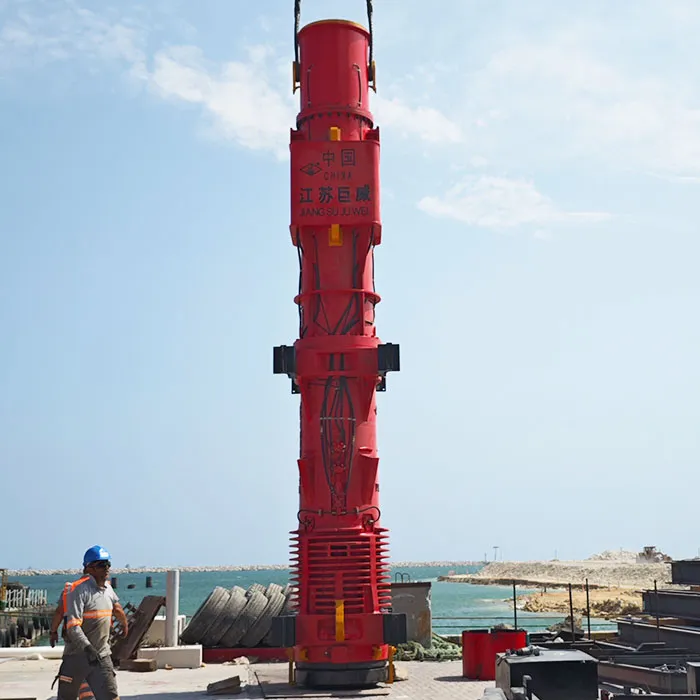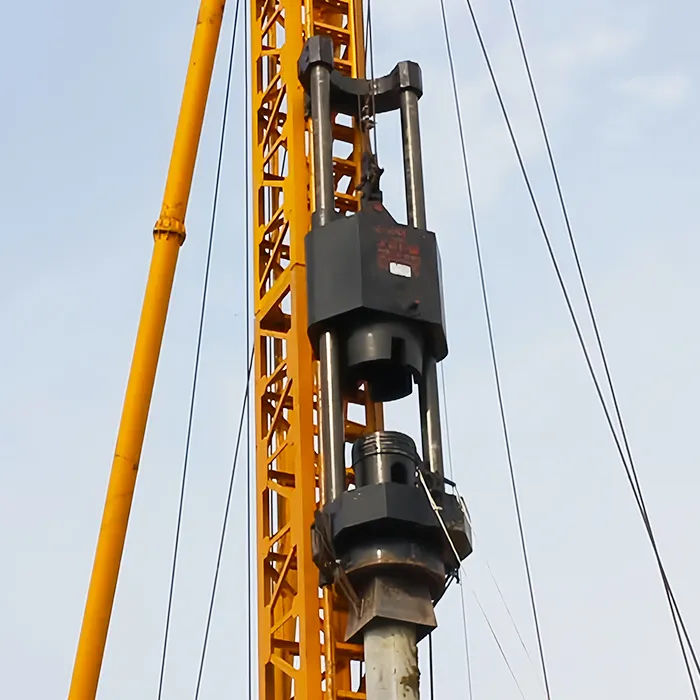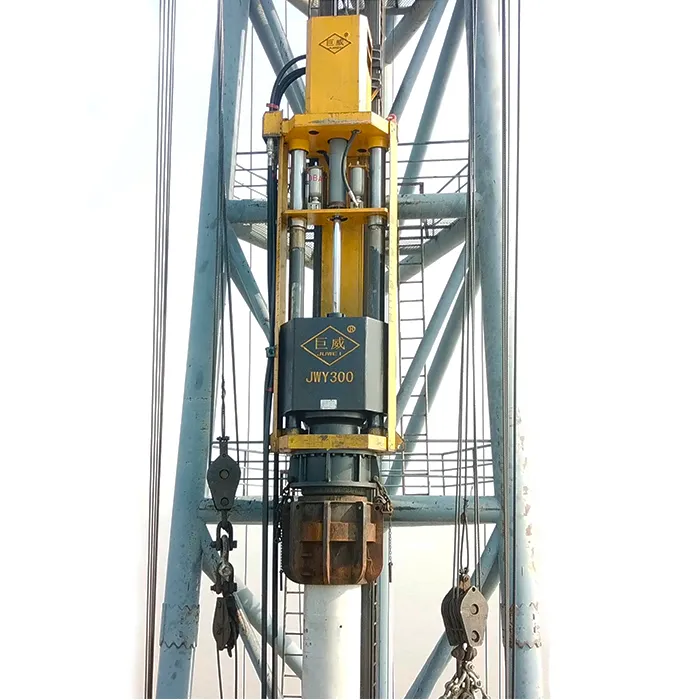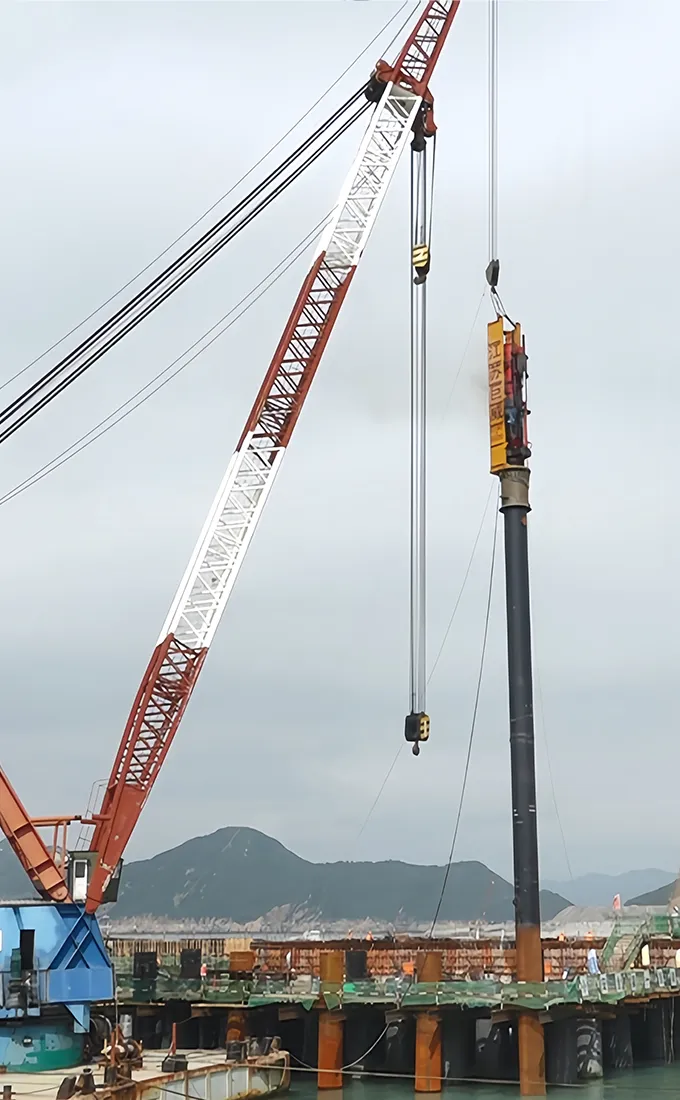In piling operations, lifting equipment (e.g. crawler cranes) are used to lift the piling hammer. I witnessed this first-hand while working on a piling site in Singapore. We were driving 40-meter-high steel piles for a new skyscraper when the crane alarm went off – a catastrophic overload was imminent. That experience taught me something I could not learn in college. Lifting equipment is not only about strength, but also about safety. Today, I would like to share my experience on the role of lifting equipment in piling, and choosing the right lifting equipment for piling.
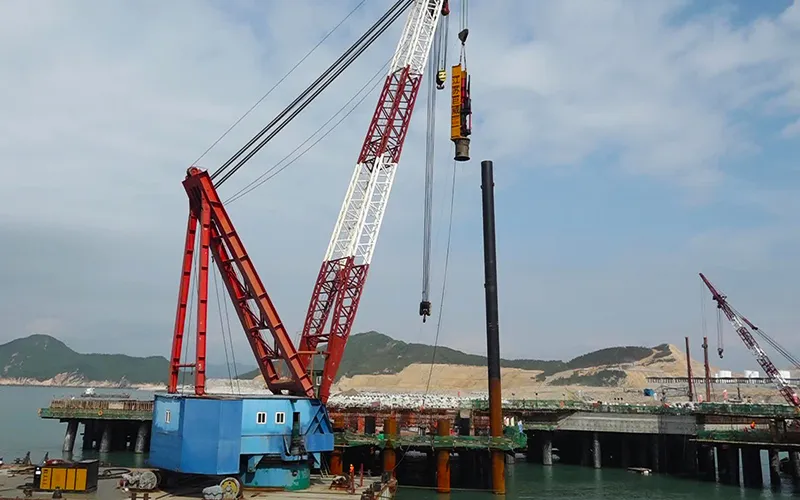
Why Lifting Equipment is the Backbone of Piling
A crane is a versatile piece of equipment. During the Marina Bay Sands project, we faced a nightmare. Our dedicated pile driver broke down, but thanks to the Liebherr HS 855 HD crawler crane, we were able to:
- Continue piling operations
- Handle all material logistics
- Position reinforcement cages
- Even assist with formwork installation
This versatility saved us nearly $100,000 in potential delays. Modern piling equipment has gone far beyond simple lifting capabilities – today’s machines are complete foundation solutions.
Key statistics:
78% of modern pile drivers now have lifting capabilities
Integrated systems reduce mobilization time by up to 65%
Dual-function machines reduce project footprint by 40%
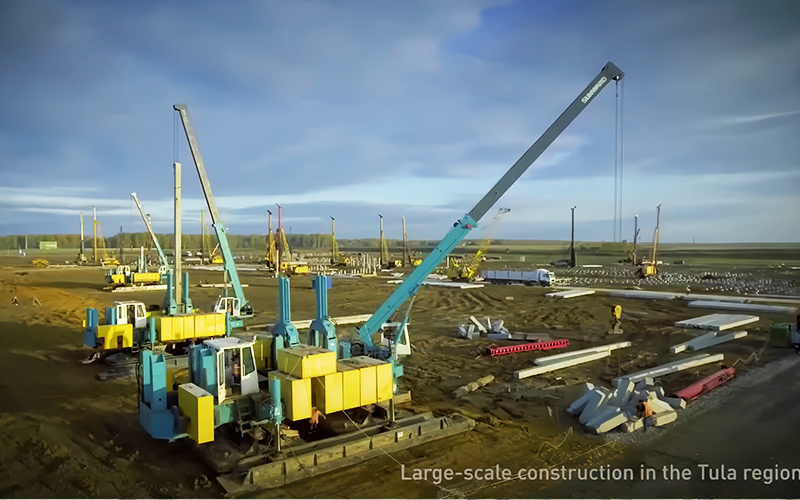
The indispensable role of lifting equipment
Accurate pile foundation positioning
In the Hong Kong Zhuhai Macao Bridge project, we must drive an 80 ton pile foundation into the turbulent water flow with a precision of 5 millimeters. Our solution? Demag CC 8800 crawler crane, equipped with:
- Real time GPS positioning
- Automatic load torque indication
- Hydraulic synchronization system
Even in the water flow, 2000 pile foundation construction installations have been completed.
Daily crane operation
Material handling, equipment positioning, support operations: assist in installing casing, emergency response: restore stuck or broken piles
Safety Performance
In a recent construction project in Zhuhai. our crane stability monitoring system detected a 2 ° tilt caused by groundwater movement. The automatic shutdown system avoids continuing erroneous pile driving operations. Modern security systems include:
- Wind speed monitoring
- Load path prediction software
- Automatic leg pressure adjustment
Common types of lifting equipment used in pile driving
Excavator
It is common for us to use an excavator to lift a pile hammer. Remove the bucket arm of the excavator and modify it on the main arm to connect it to the pile driving column.
Crawler crane
Crawler crane is a common equipment used to drive piles with a dd diesel hammer. Crawler cranes are mounted on crawler tracks. Providing excellent stability and maneuverability even in uneven or soft ground conditions. For our peatland project in Indonesia, only the Caterpillar M315D can do the following:
35° slope operation
1.5-meter-deep soft soil layer
All-weather continuous operation
Main advantages:
Ground pressure as low as 50 kPa
360° continuous rotation
Excellent stability, suitable for vibrating operations
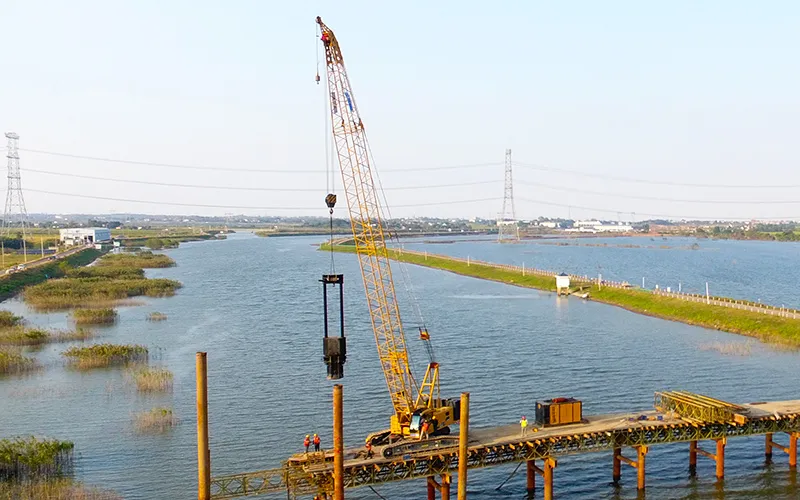
Truck crane
Truck crane uses wheeled chassis at the bottom. Therefore, it can travel on the road. The driver can drive directly to the pile foundation construction site. For urban projects that require flexibility, truck cranes are convenient to use. Truck cranes are used to lift pile hammers for lifting. The advantages of using the Grove GMK6400 crane include:
15-minute setup time
Can carry 160 tons of cargo in a small space
Can be driven on public roads
Pro tip: Before wiring, be sure to confirm the weight limit of the bridge.
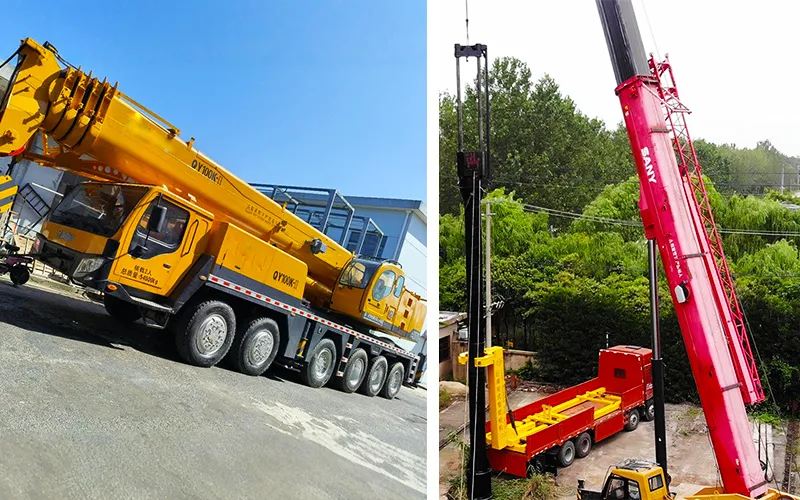
Marine crane
Mainly used in offshore deep foundation construction projects. Offshore pile driving vessels are mainly composed of cranes, hulls, pile legs and pile shoes, pile hammers and lifting systems. Offshore pile driving vessels integrate the functions of crane ships, offshore work platforms and transport ships, pile hammers and life supply ships, making it easy to work independently at sea. It is also equipped with advanced dynamic positioning systems and automatic control systems, which are flexible and easy to operate.
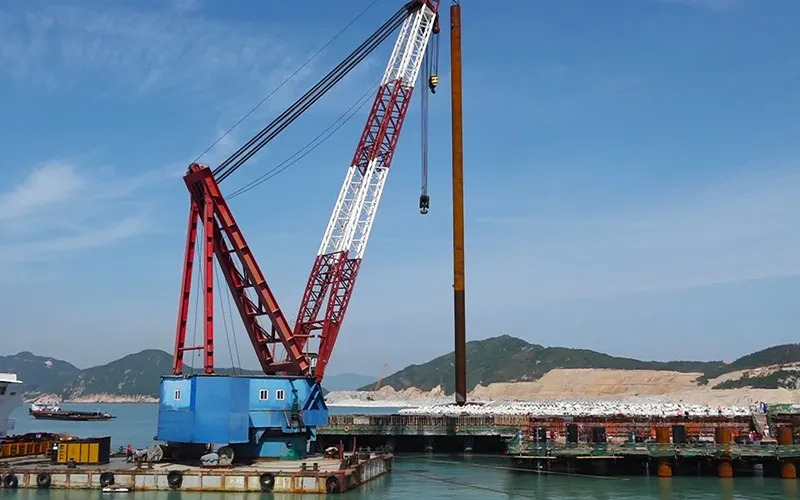
Pile Lifting Equipment Maintenance
Daily inspections are required for pile hoisting equipment, our checklist includes:
- Wire rope inspection (broken 6 wires = replace)
- Hydraulic hose inspection
- Pulley groove measurement
- Structural bolt torque verification
We have reduced failure rates by 60% through the following measures:
- Oil analysis every 250 hours
- Vibration monitoring
- Thermographic scanning
- VR-assisted training simulation
Selecting the Perfect Lifting Equipment for Your Piling Project
Load capacity and lifting height requirements
The maximum lifting weight required needs to be determined.
Calculate the required lifting height. This includes the length of the pile and the height from which the equipment is to be piled.
Site considerations
Whether the selected excavator, crawler crane, or truck crane can reach the site. And the construction site, whether it is soft soil or hard soil. Is the equipment operating site a crowded city or a wide area. Environmental restrictions, noise and emission requirements.
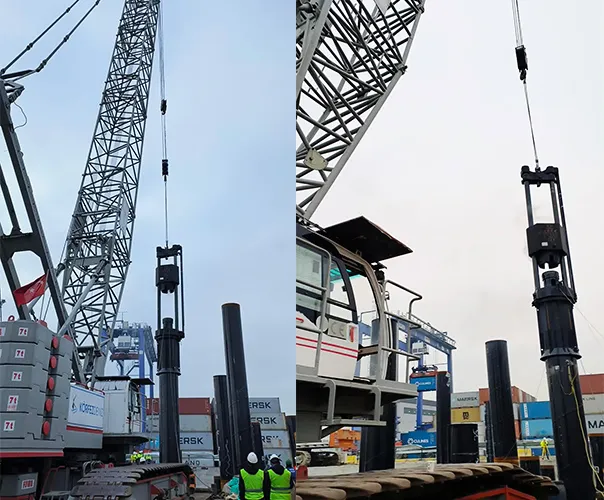
Conclusion
The right lifting equipment not only gets the job done, it determines the success of your project. Learn about the different types of lifting equipment such as excavators, crawler, mobile crane and barge marine cranes. This will help you make an informed choice to save time and money.


